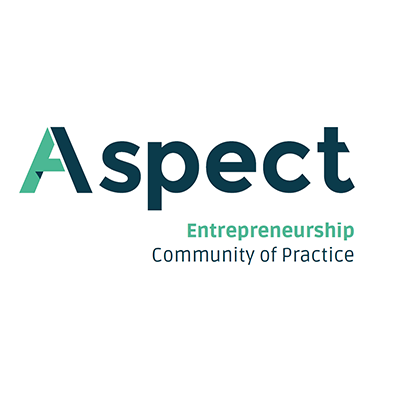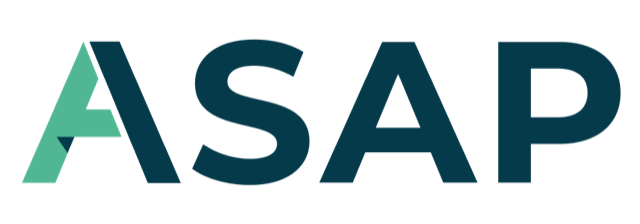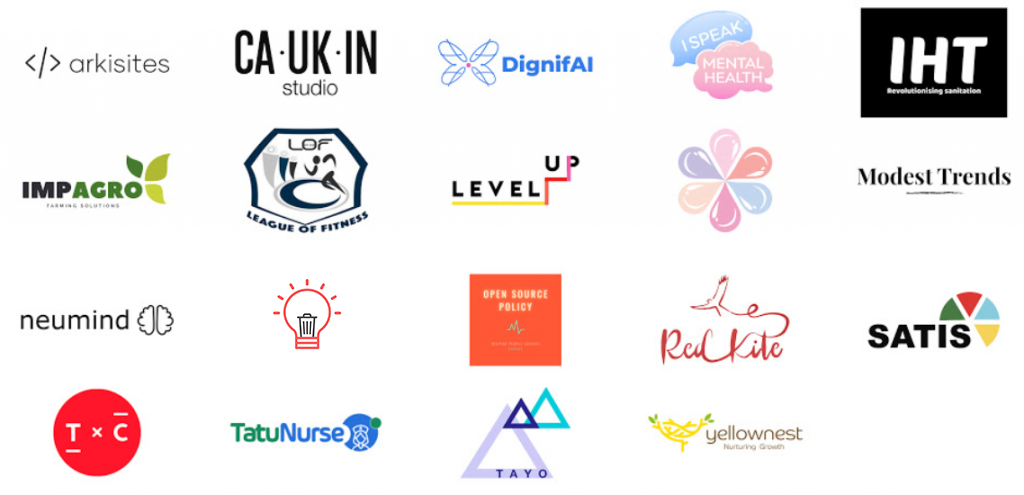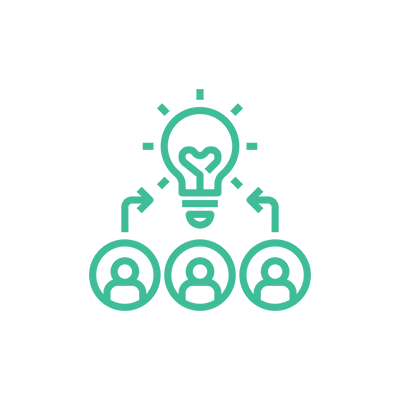Aspect case studies draw together pioneering examples of innovation, entrepreneurship and research commercialisation in the social sciences across the Aspect member network. Showcasing academics and student entrepreneurs who are tackling diverse challenges from mental health to open-source policy, these case studies aim to provide examples of good practice through in-depth stories and views from those who have been directly involved.
You can view case studies below:
The Business Engagement COP have led a series of Aspect-funded projects focused on developing good practice in and exploring challenges related to industry and academic engagement in social sciences. These included four sector deep dives, two ‘challenge workshops’, and the BE Ideas Box Pilot Project.
Sector Deep Dives
While there are a breadth of industries where social sciences (SocSci) can add value, the four sectors chosen as focus points for ‘deep dives’: Creative Industries, FinTech, Legal Tech, and Health Tech. Through workshops, interviews, surveys and research, COP members – together with social scientists and industry representatives – collaborated to develop useful and insightful guidance on how to encourage engagement between academics and businesses in these sectors.
- Creative Industries (University of Manchester & University of York) – An investigation into activities between SocSci academics and the creative industries in the Northwest of England highlighted a plethora of activity in this area. The creative industries overall report a value in engaging with academics due to mutual interests and benefits.
- FinTech (University of Glasgow & University of Bristol) – Interviews with several small to medium companies and workshops with representatives from the sector highlighted an awareness of the value of social sciences but a lack of time, incentives, and knowledge to engage with professor-level academics.
- Legal Tech (LSE & University of Manchester) – A review of engagement and collaboration between law and industry at LSE and the University of Manchester. Discussions in this deep dive highlighted different approaches at both LSE and Manchester, and perceptions about the value to universities and academics, and law firms
- Health Tech (Aberystwyth University) – Through interviews, survey, and workshops, this deep dive explores the challenges faced by health-tech companies in the development and adoption of their technologies, and the ways in which collaboration with social science researchers might benefit this process. Insights can be used to inform an approach to business engagement with the health-tech industry that highlights the valuable contributions social sciences research can make and, in the process, breaks down barriers that are inhibiting further engagement with the field.
Challenge Workshops
- Funding Challenges Workshop Report: A workshop with COP members explored how funding mechanisms can best fit the needs of social scientists, to ensure that social science businesses engagement is given the same encouragement and recognition as other disciplines within universities and by funders.
- Equality, Diversity and Inclusion in SocSci BE: The COP commissioned a small independent review to explore how a sub-set of members are addressing issues of equality, diversity and inclusion in social sciences business engagement.
Pilot project
- Business Engagement Ideas Box (University of York):Engagement with the business sector can add real strength to social sciences research activity and deliver significant, measurable and sustainable impact. However, the path from social sciences research, though engagement and partnership building, to the development and exploitation of business and commercialisation opportunities contains many obstacles. This project tackles three of the key challenges: Peer learning, Academic engagement and Institutional support structures.
This project applied the findings from research on political misinformation and digital information literacy to help schools teach their students to spot, stop and prevent online misinformation.
Specifically, the project created a teacher training resource to increase the teachers’ understanding of this issue, enhance the effectiveness of teaching on this subject whilst reducing the time spent on planning, and help to connect teachers with other educators and academic researchers in this field.
Led by the University of Manchester, the approach was three-dimensional. First, they worked with secondary school teachers and other education professionals in the UK to assess the teaching and learning needs relating to the problem of online misinformation. Second, they applied insights from social science research to develop effective strategies for tackling this problem in an educational environment. Third, they worked with the commercial sector to identify the opportunities for the more widespread dissemination of a digital information literacy resource in schools across the UK.
Through this project, links and relationships between Aspect and HEIs in middle income countries (MICs) have been built. The project delivered online training for ECRs and KE professionals on how to engage with international development activity focused on applied social sciences and entrepreneurship; and faculty in the MIC partner institutions. The project also explored the development of an entrepreneurship model for marginalised and impoverished communities in MICs.
Learnings from the Internationalisation of Aspect pilot project can be found within this summary report, by Andre Mostert at the University of Sussex.
What’s next and how can Aspect members get involved?
Aspect member institutions can get involved by encouraging their academics to engage with grantees to potentially collaborate for a multi-institution grant application. If you are interested in engaging further, please contact Andre Mostert at a.m.mostert@sussex.ac.uk
The problem: there is a limited awareness and understanding of how to commercialise board games based on social sciences research.
Many researchers in SocSci are already producing successful, engaging resources for game-based learning, but hit a roadblock when it comes to the challenge of disseminating their product beyond their own institution and generating income. Educational board games based on research are overwhelmingly STEM oriented, likely due to clear avenues to market.
In SocSci, these avenues are less well-known, and any social sciences game that does get commercialised is likely by accident rather than by design.
The solution: the development of resources and tools for game-based learning in the social sciences, using real world commercialisation experience, as a case study.
The Educational Games team devised a two-phase plan to increase awareness and understanding of how to commercialise academic/university-generated games based on social sciences research.
- Phase I – support the commercialisation of Brave New World (BNW), a game based on law and human rights research from Manchester and Nottingham Trent University. Learnings from this process were then used to inform and develop resources for Phase II.
- Phase II – the development of an Ed Tech Games Hub that will provide space for a community to engage with resources and tools specifically designed to inform academics, professional services, and industry on the process of the commercialisation of board games based on social sciences research.
What’s next?
The Board Games team has noted key areas for next steps:
• The team are continuing to deliver workshops to get social scientists thinking about how they can bring their research to wider audiences.
• Populate the virtual Hub (available via the Aspect members Platform) with resources and tools to help academics commercialise their research into game-based learning opportunities.
• The post associated with facilitating the labs has switched over to Glasgow. The Game Hub coordinator is working on sustainability of the Hub and assessing other academic games.
How can Aspect members get involved?
Aspect members can sign up to the Games Hub platform through the the Aspect members Platform under “Communities”.
The Aspect Entrepreneurship Community of Practice hosted a series of monthly workshops, providing a platform for members to share about activities at their institutions, exchange ideas, and explore challenges and opportunities in social sciences student entrepreneurship.
The workshops included research presentations on a topic, “show and tell” sessions from members, invited speakers, and facilitated discussions. The COP also funded two “mini-projects” to explore some of the issues raised in more depth.
Workshop schedule:
The outputs from these sessions are available below.
Mini-Projects:
- ASAP Club Digital Toolkit – a digital support structure for applicants who apply for social sciences and/or social-impact accelerators but don’t reach the final cohort selection
- Soc Sci Entrepreneurs Journey Map – (coming soon)
ASAP is a flagship four-month social sciences student and alumni accelerator hosted by LSE to support and scale socially-responsible student and alumni ventures.
Nineteen UK selected university student and alumni enterprises, all of whom are solving pressing socio-economic and environmental issues, collaborated and developed their businesses over a four-month period. The new online accelerator brought together students and alumni from across the Aspect community.
The four month programme included:
- Fortnightly online training bootcamps hosted by both academics and practitioners from the Aspect network
- Access to unique 1:1 mentoring opportunities
- Bi-weekly peer skill-sharing sessions
- Tailored online resources
- A small stipend, conditional of full participation.
ASAP is the first joint university accelerator of its kind in Europe – the programme is tailored specifically towards driving social change through entrepreneurship.
Our programme leverages the complementary skills, networks, and academic research opportunities across the diverse Aspect community.
The accelerator brings together a unique yet like-minded community of student entrepreneurs who are building socially impactful and responsible scalable businesses. All participants are contributing to the United Nations Sustainable Development Goals, either through the socially-responsible running of the business (data ethics/transparency of the supply chain/gender parity) and/or the measurable social/environmental impact created through the business idea.
Why now?
Programme managers and ASAP alumni believe it is currently important to have specific accelerator programmes that support these unique founders, and for a good reason. Social ventures and social sciences based start-ups have a fundamentally different mindset that requires bespoke support across all aspects of an accelerator programme. Founders get value from the social venture angle, which also benefits the social sciences, helping to achieve goals like increasing engagement from the social sciences. Social scientists see and appreciate that these types of accelerator programmes are uniquely designed for them and it helps to promote and nurture their entrepreneurial mindset. Until SHAPE and STEM disciplines are fully integrated and catered for in traditional accelerator programmes, a standalone social sciences accelerator has important benefits to provide visibility to these types of ventures.
For more information, contact LJ Silverman, Head of LSE Generate, The London School of Economics and Political Science: L.J.Silverman@lse.ac.uk

This project aims to provide social science students with dedicated resources aimed at informing, inspiring and preparing them for life as an entrepreneur. It will generate resources via a podcast series (recorded interviews with entrepreneurs) and four Creative Challenge events.
Outcomes and Next Steps
Both the podcasts and creative challenge workshops successfully created new resources aimed to encourage social sciences students towards participating in entrepreneurship. Rather than focussing on traditional topics designed to rapidly test a business idea, these resources instead target developing and strengthening the entrepreneurial mindset and lay the groundwork for a potential future in entrepreneurship.
You can find the outputs here:
This project is a collaboration between social science academics (at the Universities of Sheffield and Liverpool) and external business partners (Mobilise – founded during ZINC mission 2) and their software providers.
Mobilise is currently offering a platform to support family and other informal carers as they adapt to caring under lockdown and other COVID-19 related restrictions.
This project will examine the challenges of caring during a global pandemic. It will also explore how, and to what extent, a virtual platform can help families cope with new ways of living and caring during an ongoing and evolving public health crisis. The team will finally consider how to promote the sustainability of the platform after the pandemic abates.
What does this project tell us about entrepreneurship offerings for the social sciences?
Whilst some SocSci specific offerings are not required as universities did report some level of engagement from social sciences students with existing offerings, they do however tend to engage with programmes and activities offering more generic entrepreneurship skills (e.g., traits needed to be a successful entrepreneur), not those designed to progress existing business or business ideas (e.g., lean canvas methodology, pitching training). One potential recommendation emerging from this work is that universities should consider how to make small changes to existing programmes, in order to attract in even more social sciences students. Examples of potential changes (that have been developed and trialled in other Aspect funded projects) include: 1) the addition of content about entrepreneurial skills and choosing different role models and speakers that resonate with social scientists (seen in the Podcast project); and 2) including more support for social enterprises and alternative business models (see ASAP project) and 3) using more inclusive language to market the support offerings that will resonate better with social scientists.






